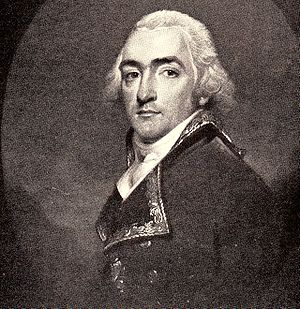Patriotas neerlandeses


Os Patriotas (em neerlandês: Patriotten) foram uma facção política surgida nos Países Baixos durante a segunda metade do século XVIII, inspirada pelos mesmos princípios que pouco depois dariam origem à Revolução Francesa. Defendiam o fim do sistema de governo dos Países Baixos baseado no Stathouder, que se tornara hereditário e era por eles considerado como corrupto e eivado de nepotismo, e a concessão de direitos aos cidadãos. Este posicionamento face às instituições vigentes ganhou grande aceitação entre a população, particularmente entre a classe média e a burguesia mercantil, que assistiam impotentes ao declínio da pujança comercial dos Países Baixos, com grandes perdas para as suas economias privadas. Os Patriotas olhavam para a Declaração de Independência dos Estados Unidos da América como um modelo a seguir, pretendendo obter iguais direitos. O movimento culminou na formação de milícias paramilitares, chamadas Exercitiegenootschappen, que procuravam derrubar o governo pela força. Derrotados por uma intervenção armada da Prússia em 1787, muitos dos Patriotas refugiaram-se na França, onde se ligaram às forças que apoiaram a Revolução e mais tarde Napoleão Bonaparte na sua ascensão ao poder. Em 1795, com o apoio da França, conseguiram conquistar o poder nos Países Baixos e aí fundar a República da Batávia.
Ver também
[editar | editar código-fonte]Bibliografia
[editar | editar código-fonte]- Simon Schama, Patriots and liberators - Revolution in the Netherlands, 1780-1813 (4th edition, Amsterdam 2005).
- Louis Prosper Gachard (1890), Études et notices historiques concernant l'histoire des Pays-Bas
- H.G. Koenigsberger, Monarchies, States Generals and Parliaments. The Netherlands in the fifteenth and sixteenth centuries, Cambridge University Press, 2001, ISBN 978-0-521-04437-0
- J.I. Israël, The Dutch Republic: Its Rise, Greatness, and Fall 1477–1806 Oxford: Clarendon Press, 1995
- Simon Schama, The Embarrassment of Riches: An Interpretation of Dutch Culture in the Golden Age. New York: Random House USA, 1988
- Martijn van der Burg, Transforming the Dutch Republic into the Kingdom of Holland: the Netherlands between Republicanism and Monarchy (1795-1815) in European Review of History (2010) 17#2, pp 151-170
Text is available under the CC BY-SA 4.0 license; additional terms may apply.
Images, videos and audio are available under their respective licenses.
